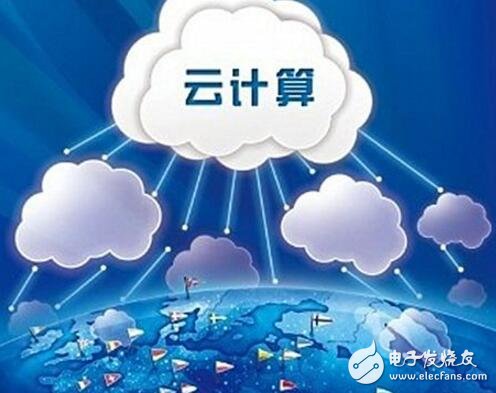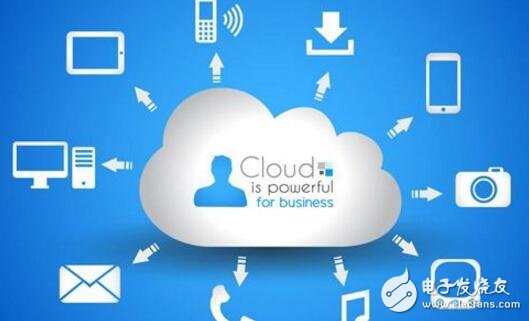Cloud computing (cloudcompuTIng) is an add-on, use, and delivery model of Internet-based related services that typically involves providing dynamically scalable and often virtualized resources over the Internet. Cloud is a metaphor for the Internet and the Internet. In the past, the cloud was often used to represent the telecommunication network, and later used to represent the abstraction of the Internet and the underlying infrastructure. As a result, cloud computing can even make you experience 10 trillion operations per second, with such powerful computing power to simulate nuclear explosions, predict climate change, and market trends. Users access the data center through computers, laptops, mobile phones, etc., and perform calculations according to their own needs.
There are many ways to define cloud computing. For what exactly is cloud computing, at least 100 explanations can be found. At this stage, it is widely accepted that the National Institute of Standards and Technology (NIST) defines that cloud computing is a pay-as-you-go model that provides usable, convenient, on-demand network access and configurability. The computing resource sharing pool (resources include network, server, storage, application software, services), these resources can be quickly provided, with little administrative effort or little interaction with service providers.

(1) Super large scale
"Cloud" is quite large. Google Cloud Computing has more than 1 million servers. The "clouds" of Amazon, IBM, Microsoft, Yahoo, etc. all have hundreds of thousands of servers. Enterprise private clouds typically have hundreds of thousands of servers. "Cloud" gives users unprecedented computing power.
(2) Virtualization
Cloud computing allows users to access application services from any location using a variety of terminals. The requested resource comes from the "cloud" rather than a fixed tangible entity. The app runs somewhere in the "cloud", but in reality the user doesn't need to know or worry about where the app is running. With just one laptop or one mobile phone, you can do everything we need through web services, even tasks like supercomputing.
(3) High reliability
The "cloud" uses measures such as data multi-copy fault tolerance and computational node isomorphism to ensure high reliability of services. Cloud computing is more reliable than using local computers.
(4) Universality
Cloud computing is not targeted at specific applications. Under the support of “cloudâ€, it can construct ever-changing applications. The same “cloud†can support different application operations at the same time.
(5) High scalability
The scale of the "cloud" can be dynamically scaled to meet the needs of application and user scale growth.
(6) On-demand service
“Cloud†is a huge resource pool that you buy on demand; the cloud can be billed like tap water, electricity, and gas.
(7) extremely cheap
Because the cloud's special fault-tolerant measures can use extremely inexpensive nodes to form a cloud, the automated centralized management of the "cloud" allows a large number of enterprises to not have to bear the increasing cost of data center management, and the versatility of the "cloud" makes resource utilization Compared with traditional systems, users can fully enjoy the low-cost advantage of “cloudâ€, often spending hundreds of dollars and several days to complete tasks that previously required tens of thousands of dollars and months to complete.
Cloud computing can completely change people's future lives, but at the same time, we must also pay attention to environmental issues, so that we can truly contribute to human progress, rather than simple technological advancement.
(8) Potential danger
In addition to providing computing services, cloud computing services must provide storage services. But cloud computing services are currently monopolized in the hands of private institutions (enterprises), and they are only able to provide commercial credit. For government agencies and commercial organizations (especially those with sensitive data such as banks), there should be sufficient vigilance for the selection of cloud computing services. Once commercial users use cloud computing services provided by private organizations on a large scale, no matter how strong their technological advantages are, they inevitably let these private organizations use the importance of “data (information)†to curb the entire society. For the information society, “information†is crucial. On the other hand, data in cloud computing is confidential to other users of cloud computing users other than data owners, but there is no secret to the business that provides cloud computing. All of these potential dangers are an important premise that business organizations and government agencies have to consider when choosing cloud computing services, especially those provided by foreign institutions.

This layer of most data center cloud computing architecture is mainly used to display the content and service experience required by users in a friendly way, and will utilize the various services provided by the middleware layer below. There are five main technologies:
HTML: Standard Web page technology, now mainly based on HTML4, but the upcoming HTML5 will promote the development of Web pages in many aspects, such as video [1] and local storage.
JavaScript: A dynamic language for web pages that greatly enriches the functionality of web pages with JavaScript and creates more interactive dynamic pages with JavaScript-based AJAX.
CSS: Mainly used to control the appearance of web pages, and to elegantly separate the content of the page from its presentation.
Flash[2]: The most commonly used RIA (RichInternet ApplicaTIons) technology in the industry can provide rich web-based applications that are not available in HTML and other technologies at this stage, and it is very good in terms of user experience.
Silverlight: RIA technology from the industry giant Microsoft, although its current market share is slightly lower than Flash, but because it can be programmed using C# [5], it is very friendly to developers.
Universal Vacuum Cleaner Dc Motor
Universal Vacuum Cleaner Dc Motor,Dc Motor Vacuum Cleaner,Dc Brushed Motor,Motor For Vacuum Cleaner
Zhoushan Chenguang Electric Appliance Co., Ltd. , https://www.vacuum-cleaner-motors.com